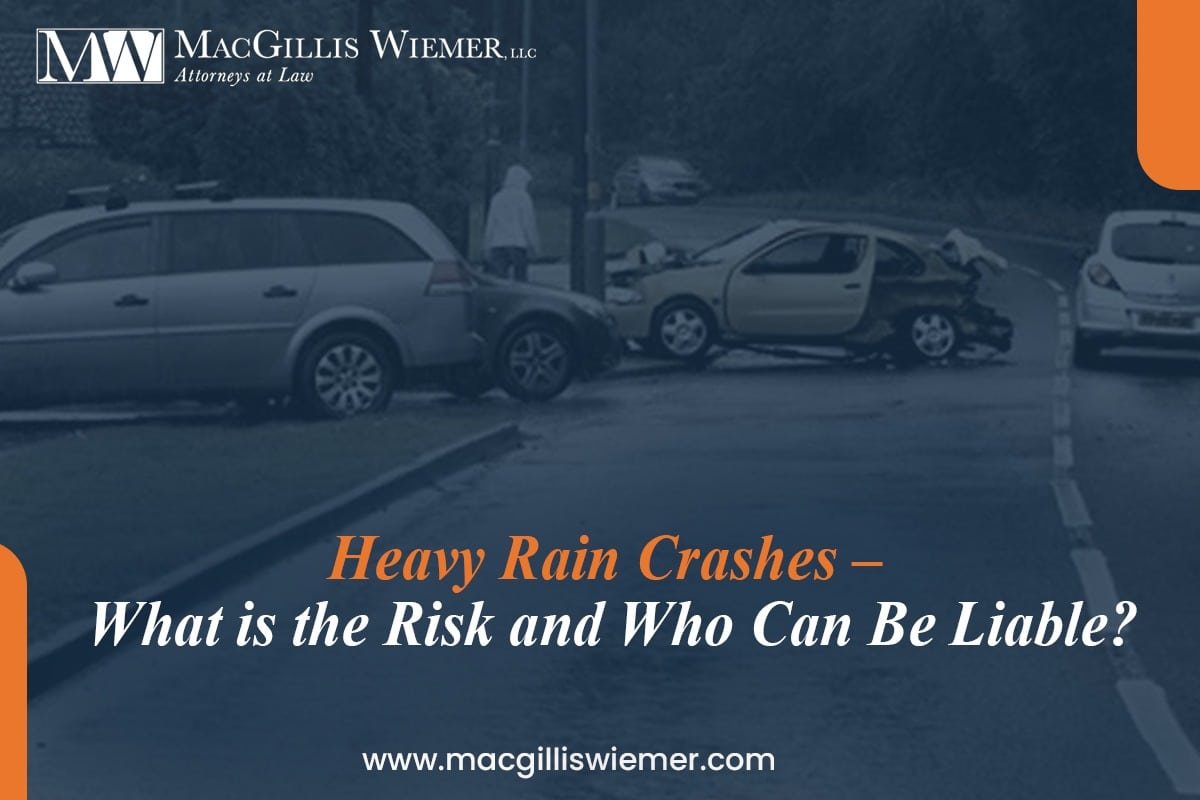
As Wisconsinites, we’re accustomed to driving in challenging weather conditions, such as heavy rain and snow. However, some people may mistakenly believe that these conditions can excuse them from responsibility in the event of an accident. Regardless of the weather, drivers are still expected to take the necessary precautions to ensure the safety of themselves and others on the road.
Why Bad Weather Doesn’t Excuse Negligence
If you’re driving in heavy rain and cause an accident, you may still be held liable for any damages or injuries that result. This is because, regardless of the weather, all drivers have a legal duty to operate their vehicles safely. Driving in extreme conditions like a downpour requires extra caution, and failure to adjust your driving to the weather could be considered negligent behavior.
The Increased Risk of Accidents in Heavy Rain
Heavy rain significantly increases the chances of a traffic accident, even for careful drivers. This is due to several factors that make driving more dangerous:
- Low Visibility: Rain can make it hard to see the road and other vehicles. This problem is often made worse by fog, low light, or other weather conditions that reduce visibility.
- Hydroplaning: When water builds up on the road, your tires may lose contact with the pavement, causing your vehicle to slide uncontrollably.
- Slippery Roads: Rainwater mixes with oil and other substances on the road, making it much more slippery than usual. This reduces your tires’ traction and makes it harder to stop.
- Inexperienced or Overly-Cautious Drivers: Drivers who are not used to driving in heavy rain, or who are overly nervous, may make sudden or unpredictable movements, increasing the risk of an accident.
What Drivers Should Do to Stay Safe
If you’re driving in heavy rain, there are several steps you can take to reduce the risk of an accident:
- Turn on your headlights: This helps other drivers see you.
- Slow down: Reducing your speed gives you more time to react to any hazards.
- Avoid sudden braking: This can cause your vehicle to hydroplane. Instead, brake gently and gradually.
- Keep a safe distance: Leave plenty of space between your car and the vehicle in front of you to allow for longer stopping distances.
- Signal clearly: Use your turn signals well in advance to let other drivers know your intentions.
If conditions are too dangerous, the best option may be to pull over in a safe place and wait until the weather improves.
Determining Fault in a Rain-Related Accident
After an accident in heavy rain, investigators will look at several factors to determine who is at fault. They will examine the scene, review vehicle damage, talk to witnesses, and consider any available video footage. If a driver failed to take proper precautions for the weather conditions, they could be found negligent and held responsible for the accident.
Need Legal Help After an Accident in Heavy Rain?
At MacGillis Wiemer, LLC, we understand how challenging it can be to deal with the aftermath of a car accident, especially when severe weather is involved. If you were injured in a crash caused by another driver’s negligence, you might be entitled to compensation for your medical bills, lost wages, and other expenses.
Contact us today for a free case review. Our experienced Milwaukee auto accident lawyers are here to assist you every step of the way.
